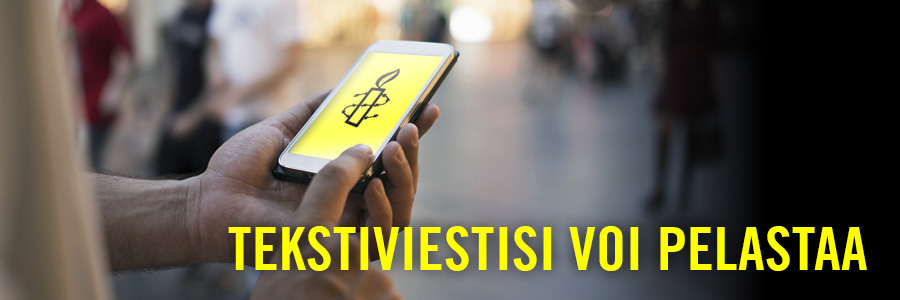Dear Chief Prosecutor,
I am writing to express deep concern regarding the ongoing criminal investigation against Géza Buzás-Hábel, in relation to organising the Pécs Pride march on 4 October 2025. According to publicly available information, Géza Buzás-Hábel, was questioned by the police as a ‘suspect of the crime concerned by the police’ on 28 October for ‘organising a banned assembly’. Following the conclusion of the police investigation, the case has been forwarded to your office for a decision on the next steps.
The police decision on the Pécs Pride, effectively declaring it ‘a banned assembly’ in September 2025 was arbitrary and discriminatory, based solely on the ‘anti-Pride’ law which became effective in April 2025. This ban and the legislation itself have been widely criticized by regional and international organisations as regressive, discriminatory and to be in violation of human rights standards. The organisation of a peaceful assembly advocating for equality, human rights, and remembrance, such as Pécs Pride, is protected conduct under the rights to freedom of peaceful assembly, freedom of expression and non-discrimination, as enshrined in regional and international standards to which Hungary is bound.
The international community is closely following Géza Buzás-Hábel’s situation, which represents an alarming escalation in the criminalization of LGBTI+ expression and peaceful assembly in Hungary.
Organising a Pride march is an act of courage, solidarity, and hope. You have the authority to reaffirm that peaceful assembly must be protected.
Prosecuting Géza Buzás-Hábel would constitute a violation of his rights, including to freedom of peaceful assembly and expression. I urge you to immediately terminate the proceedings against Géza Buzás-Hábel as he should not be at risk of prosecution simply for exercising his rights.
Lisätietoa
Géza Buzás-Hábel is a Roma, gay man. He works as a teacher and human rights defender and is from Pécs. He teaches Romani language and culture, trains future educators, and has long organised Pécs Pride, the country’s only Pride outside Budapest, ensuring it remains inclusive, peaceful, and community-driven.
On 4 September 2025, Géza Buzás-Hábel, submitted notification to local police regarding the fifth edition of Pécs Pride, scheduled for 4 October 2025. The Pécs Police Department immediately issued a pre-emptive ban, on 5 September, claiming that the assembly, which aimed to support same-sex marriage rights, transgender legal gender recognition, and commemorate LGBTI+ Holocaust victims, would expose children to prohibited content. Géza Buzás-Hábel, appealed the ban, but the Kúria, Hungary’s Supreme Court, rejected the appeal. Despite the ban, Pécs Pride proceeded on 4 October without police intervention.
On 10 October, Géza Buzás-Hábel, received an official police summons identifying him as a person “reasonably suspected of committing a criminal offence.” On 6 November, media reports indicated that the police had recommended pressing charges against him. Under Hungarian law, the Prosecutor’s Office has one year, extendable by six months, to decide whether to suspend, or terminate the proceeding, or formalise charges.
On 13 November, Amnesty International Hungary contacted the Prosecutor’s Office, which on 14 November confirmed receipt of the investigation file from the police. The Office did not indicate whether it would initiate formal charges but confirmed that the police investigation had been completed and the file is now under prosecutorial review to decide on the next procedural steps.
In 2025, Hungary escalated its decade-long crackdown on LGBTI+ rights. Act III of 2025, known as the ‘anti-Pride’ legislation, building on the 2021 anti-LGBTI+ “Propaganda Law”, was rushed through Parliament in March, and entered into force in April. The new legislation prohibits the holding of assemblies deemed to violate the 2021 “Propaganda Law”, which falsely portrays LGBTI+ visibility as ‘harmful’ to children and bans the ‘depiction and promotion’ of sexuality and diverse gender identities to people under 18. It also permits authorities to use facial recognition to identify participants and to fine those who participate in any such prohibited assemblies with up to 200,000 HUF (approximately 500 EUR). Organisers of an assembly which is banned risk criminal charges carrying sanctions up to one year imprisonment. Authorities used this law to issue pre-emptive bans on both Budapest and Pécs Pride. Nevertheless, civil society resisted, with Budapest Pride in June attracting over 300,000 participants and Pécs Pride in October drawing approximately 5,000 participants.
Hungary is bound by the European Convention on Human Rights (ECHR), the International Covenant on Civil and Political Rights (ICCPR), and the EU Charter of Fundamental Rights. These instruments require authorities to uphold the right to freedom of peaceful assembly, including assemblies promoting minority rights, to avoid discriminatory bans, and to impose restrictions only when strictly necessary and proportionate. Authorities must actively facilitate peaceful assemblies, protect participants from violence and provide remedies in cases of rights violations. Banning Pride marches and criminalising organisers is incompatible with these standards. The European Court of Human Rights has repeatedly held that assemblies promoting the rights of sexual and gender minorities fall under Article 11 protection and that restrictions based solely on moral disapproval violate Articles 11 and 14. Criminalising organisers exceeds what is necessary and fails all proportionality requirements.


